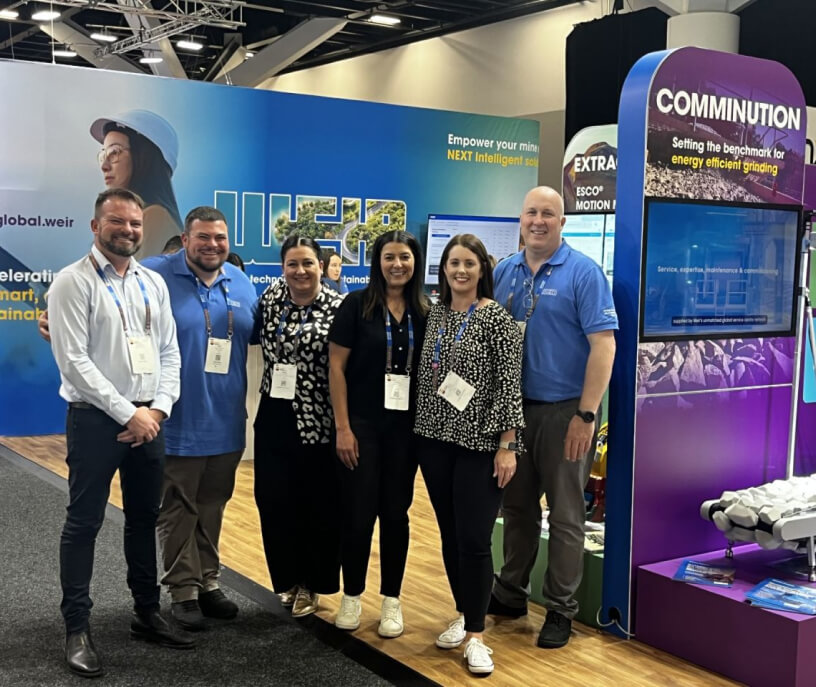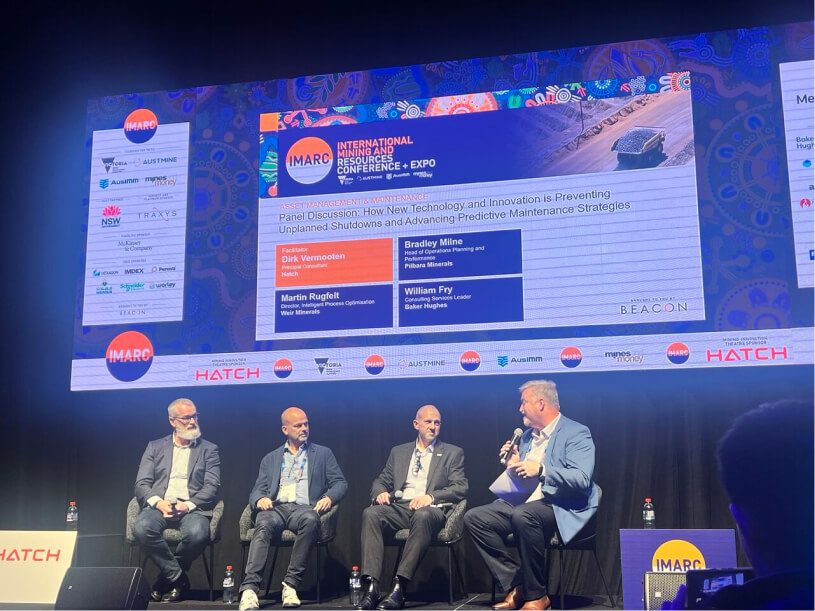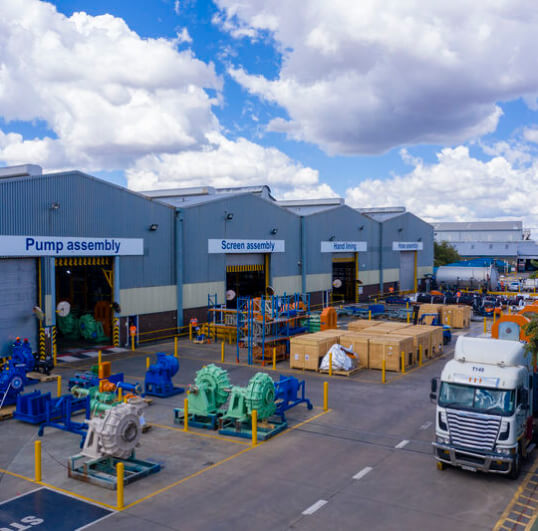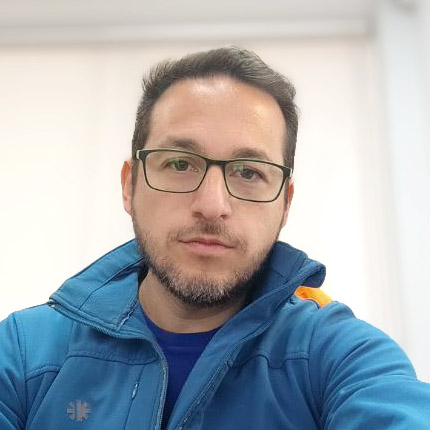Case Studies
Executive Summary
Company Overview
WEIR Chile
Challenge
To communicate and collaborate effectively with subsidiaries worldwide, WEIR Chile recognized a language skills gap among its team. English proficiency became essential, especially for reporting, reviewing technical manuals, and accessing critical information, directly impacting operational efficiency.
Solution
An English training program was custom-designed for WEIR Chile, tailored to address specific communication and presentation needs across all levels of the team.Results
WEIR Chile’s commitment to workforce development has driven significant improvements in English language skills, boosting team members’ confidence and proficiency. The training program has achieved high satisfaction ratings and has enabled professionals to contribute effectively to international projects and communications.
Background
Company Profile
WEIR Chile, part of WEIR Group, manufactures solutions and equipment for mining, including pumps, screens, and rubber products. Headquartered in Santiago, with branches in northern Chile, WEIR Chile is essential to WEIR’s supply chain in Latin America.
Initial Challenges
WEIR Chile, formally known as Vulco, got acquired by WEIR Group. This event caused a turning point in the company, establishing English as the main language of communication between teams in Chile and WEIR’s global offices. The need to have functional English proficiency among collaborators became even more critical with the introduction of technical manuals and blueprints in English, which required key professionals at WEIR Chile to acquire a foundational grasp of the language, for both operational and strategic tasks.
Objectives
Goals
To strengthen English communication skills of WEIR Chile’s team, allowing more effective reporting and presentations to WEIR offices in other countries.
Reducing language barriers in technical documentation and enhancing operational efficiency.
Key Metrics
To evaluate the success of the English training program, the following key metrics were defined and measured:Program’s Satisfaction: Indicators such as NPS, CSTA, and WEIR Chile’s internal surveys evaluate the practical application of language learning and its impact on job performance.
Program’s Success and Retention: Rate of successful course completion by participants, and retention of participants to enroll in new programs.
Attendance: Average percentage of participation in calendarized sessions during the length of the program.
Level Advancement: Average and tendency of initial proficiency levels of the participants, considering reached levels and the registered progress within Bridge levels during the training program.
Level Distribution: Proportion of participants in each CEFR level when beginning and after advancing to a new level, evaluating the overall progress of the group.
Solution
Program Design
The English training program was designed to address WEIR Chile’s specific needs, adapting to the different roles and responsibilities of each participant. It includes group classes to promote general communication abilities, along with individual classes to attend to specific needs related to the use of the English language in the work environment.
Implementation
A biannual training calendar was established to keep classes organized and aligned with work schedules, minimizing disruptions. Also, personalized options were offered depending on the responsibilities of the participants, to cover specific needs related to use of the English language at work.
Participation Method
The English training program includes constant reminders and follow-ups from the Bridge support team, ensuring the active participation of the collaborators of WEIR Chile, and helping them to meet their attendance and progress objectives.Execution
Rollout Strategy
The training was rolled out in phases, prioritizing staff who needed to communicate frequently with overseas offices. Area leaders recommended key professionals to join the English program.
Results
All the information presented below corresponds to the time between January 2023 and November 2024.Quantitative Results
The English training program implemented at WEIR Chile delivered solid results, showcasing a positive impact on the participants’ language learning and commitment to the program:
Program Satisfaction:
Bridge’s NPS: 76
Bridge’s CSAT: 93%.
WEIR Chile’s Internal Survey: 86.6%,highlighting the practical application of the language learning in job performance.
Attendance: 82.9% of participation in calendarized sessions.
Participant Progress:
Average Progress: 1.49 Bridge levels.
Qualitative Results
To measure the overall progress of the participants within the Bridge and CEFR scales, we compared the distribution of proficiency levels at the beginning of the course and the most advanced level achieved by each participant at the end of the course. This allowed us to understand the impact of the program on learning progress toward mastering increasingly complex competencies.
- A1 (Beginner): The proportion of participants remained relatively stable (44.96% to 43.75%), reflecting a balance between new participants and those who progressed toward higher levels.
- A2 (Elementary): There was a significant reduction from 24.03% to 16.41%, demonstrating an advancement toward intermediate levels.
- B1 and B2 (Intermediate and Intermediate-Advanced): There was a combined increase from 15.51% to 25.79%, highlighting a strong learning progression toward functional competencies and higher skills for international contexts.
The Impact of Trust and Collaboration
Leaders and supervisors expressed satisfaction with their teams’ progress. The participants indicate that the program helps them to feel more confident when presenting and participating in meetings in English.
Return on Investment (ROI)

Satisfaction and Retention:
High levels of satisfaction (CSAT 93%) and recommendation (NPS 76) reinforce the program’s value, increasing talent retention and highlighting a commitment to language learning.
Testimonials
Feedback from HR/Training & Development:
Cristian Peralta, Training and Development Coordinator at WEIR Chile, praised Bridge’s support efficiency:
“With Bridge, we’re always in dynamic contact. The relationship with you has been excellent.”

Cristian Peralta
Training and Development Coordinator

Feedback from Participants:
Below are insights from WEIR Chile professionals, shared anonymously, into their experience with the English training program:
“Classes are well-planned and structured, addressing the focus and context we need. Conversations are encouraged, with analysis and problem-solving activities in each session.“
“First, the instructor was excellent, making us feel confident—a big help for anyone who feels nervous about English. The platform is user-friendly, and our instructor never missed a class.”
Summary of Success
The English training program at WEIR Chile has strengthened the team’s communication skills, enabling more effective collaboration with international offices and boosting daily operational efficiency. The program has allowed team members to participate more confidently in global projects and has streamlined internal processes by minimizing language barriers.